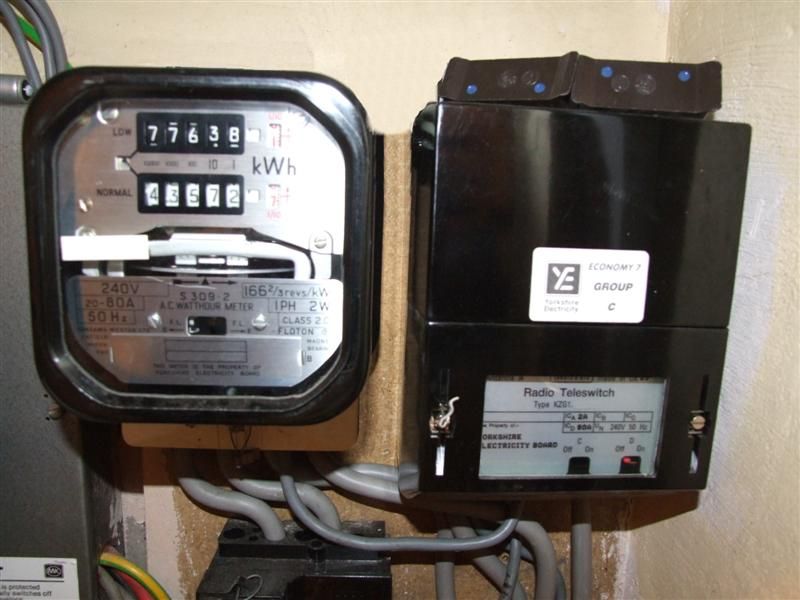Most Common Questions About Business Energy

All about business energy
What is the difference between business energy and domestic energy?
The main difference between business and domestic energy is how suppliers contract them. Business energy contracts tend to be for a fixed amount of time, where you are not free to cancel whenever you want.
Most household energy contracts last 12 months, whereas commercial energy contracts typically last 1-5 years. Fixed energy tariffs are also recommended for commercial energy usage as if a contract is signed whilst gas prices are low, that deal is locked in, even when energy prices rapidly hike.

How does business energy differ when comparing micro/small and medium/large businesses?
The main difference between micro, small, medium, and large companies is the different types of contracts available and how they are priced. For instance, SMEs commonly decide on fixed-rate tariff contracts, as these provide the maximum mixture of ease and affordability.
A fixed-rate agreement ensures that new businesses are protected from increasing energy tariffs, allowing them to keep track of their budgets seamlessly.
Larger companies may choose a flexible purchasing contract to enable them to buy and sell gas to optimise their revenue.
Different factors set micro businesses apart from other business types.
Micro-businesses can view their energy prices online using only their consumption information and postcode and cancel their contract closer to the end date.
Will I have to submit proof that my business is small?
Yes. You may need to provide sufficient evidence to your supplier to prove your company is a small business. This information includes the number of employees, the business’s annual turnover, and energy consumption.
How is my business protected when purchasing commercial energy?
Energy providers must follow a series of industry codes and the supply licence conditions. These conditions relate to how energy suppliers treat their customers and ensure that customers are protected. If you are unhappy with your commercial energy supplier, you can raise a compliant through with the Energy Ombudsman, please click here to start your complaint. Purely Energy can help assist you with your complaint if required
On average, how much do small businesses spend on energy bills?
The total cost of energy bills is dependent on a few factors. Firstly, how big is your business, and how much energy do you consume? Are you on a fixed-rate tariff – and, therefore, not subjected to energy bill increases/decreases?
On average, a small UK business will spend between £820 and £1458 a year on energy bills, with their average usage being between 15,000 and 30,000kWh.
How can small do businesses save money on energy bills?
Minor changes to your energy usage habits can significantly affect your energy bills.
Such as:
- Ensuring all computers and lights are turned off when you are finished.
- Only use what you need, for example, turning off any lights or plug sockets that are not required.
- Insulate doors and windows to prevent heat from escaping. Window film is a cheap way to insulate your workspace by yourself, and it can be found in most hardware shops or online.
- Radiator Reflector foil behind all of your raditors will ensure that excess heat isnt lost through the walls and instead is reflected back into the room.
- Upgrading your lightbulbs can also reduce your electricity output by a significant percentage.
- LED lightbulbs use tiny amounts of energy and are also long-lasting.
- Installing a smart meter then using software that will help you graph where the consumption on which day and time the most amount of energy was used, we are big believers in trying to visualise your energy consumption.
What affects the price of commercial energy?
Several different factors affect the price of wholesale energy. Factors can include:
- Weather
- How the energy is stored
- Crude oil prices
- Wind generation
- Flow and availability
- Supply and demand
Supply and demand have arguably been the critical factor in determining energy prices over the past two years. We have seen supply shortages due to a prolonged winter in 2020/2021, which led to natural gas storage capabilities being drained.
Political conflicts also affect supply and demand, as the pipeline, which transports gas from Russia to Germany, and then to other destinations, was closed after the Russian-Ukrainian war.
Despite all these ongoing changes to gas prices, most businesses will not feel the strain of increasing prices due to having a fixed-price energy tariff. This is one reason why it is so crucial for companies to switch to a fixed-energy tariff whilst prices are low.
How will you know when your current energy contract is ending?
If you check your most recent energy bill, the end date should be in the section alongside your tariff name and account number. Otherwise, you can check the signed energy contract or contact your supplier.
What are out-of-contract or ‘deemed’ rates?
Out-of-contract rates are the default charges that an energy supplier will charge you when your contract ends, and you still need to sign into a new one.
Deemed rates can be considerably more expensive than contracted rates, so you should always be aware of when your current contract ends so that you can arrange a new contract as soon as the current one ends.
How long will it take to switch suppliers?
If you have no outstanding debt on your account, a successful supplier switch can be made in less than 5 working days .
Will I lose my energy supply whilst I am switching suppliers?
There’ll be no disruptions to your energy supply as the new energy will still come from the same grid. The only difference in suppliers is the billing and contracts.
What information will I need for the switch?
Typically, you must provide your company name, registered address, meter number, and site address. In addition, your new supplier will need information regarding the type of product you want and the date you want your contract to start.
What do I do if my current supplier has objected to switching?
Usually, this means there is an outstanding debt on the account that must be adhered to before the switch can occur. Once the debt has been paid and the issue is resolved, they’ll remove the objection, and your new energy contract can be put live.
Is my business eligible for an AMR / Smart Meter device?
AMR (Automatic meter reading) devices automatically collect data from your metering devices and transfer this data to your current supplier for billing and analysis reasons. You do not need to give your supplier manual meter readings with an AMR device. Since AMR devices use SIM technology, as long as your site has a decent signal, then it is suitable for an AMR device.
What happens if there is an error with my AMR?
It is advised that even with an AMR, you still regularly check your meter readings to ensure there are no technical issues with your AMR.
What is an MPAN or MPRN number?
A meter point administration number (MPAN) is a unique 13-digit number that refers to your company’s electrical supply. A meter point reference number (MPRN) refers to your gas supply.
Remember:
Electricity = MPAN
Gas = MPRN
How can I check that my energy bill is correct?
You can send your supplier frequent meter readings.
This will ensure you are paying the correct amount. To avoid estimated readings, you should take a meter reading on the last day of every month. This ensures you only pay for the energy you have used. You should still pay attention to your meter readings and monthly bills even if you have an AMR.




